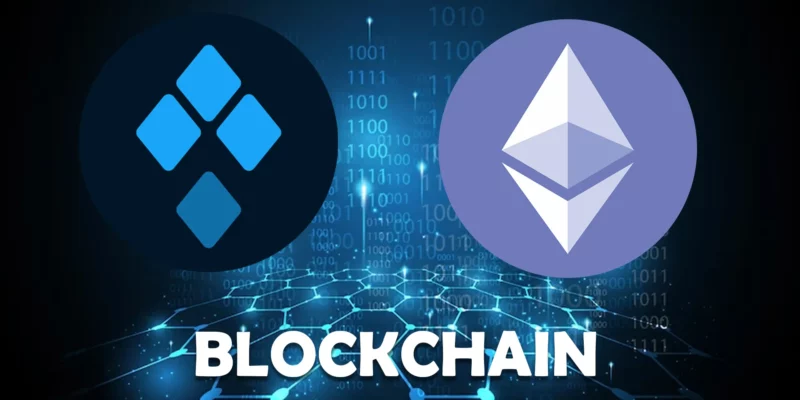- SSV network, Ethereum has played a masterstroke in making the blockchain more sustainable.
- Utilizing the SSV network will open new horizons in the field of decentralized blockchains.
Overview of SSV network
SSV network is a layer zero infrastructure that solves staking-related problems on Ethereum. Through this network, the blockchain can provide decentralization in the ETH staking process.
It stands for Secret Shared Validators network. What it means is that by harnessing the power of the SSV network, users can decentralize node creation. This way, no individual will have centralized power in the Ethereum network.
The SSV network works between the Beacon chain and the validator. The network uses DVT (Distributed Validator Technology) to distribute ETH validators between different non-trusting nodes.
When Ethereum had not implemented PoS, it was using Proof-of-work to validate a transaction. But this protocol had many flaws like blocking of funds if the contract is executed off the network. Because the contract does not hold any proof, Ethereum’s main net disallows the transaction.
To solve this, Ethereum upgraded itself with EIP-4859. It allowed users to provide Proof-of-stake. This way, even if a user executes a network contract using a roll-up, their transaction remains valid as long as it can show PoS.
But this protocol also had a flaw. Because everything on Ethereum was centralized, a validator must remain online all the time to validate a node creation. If the validator goes offline for a short period, they cannot mint ETH. Moreover, if he goes offline for a long time, the validator will lose all his staking. And eventually, he will be forced to leave the blockchain network.
It solves this issue. A validator key is distributed between different non-trusting nodes in smaller quantities, called KeyShare. These key shares will be shared between four nodes, removing centralization in the validating process.
As the validator is distributed, no single point of failure will impact the overall process. It also works even if one of the nodes goes offline. By using the SSV network, Ethereum users can simplify the staking process and utilize the maximum potential. These nodes work in harmony, thereby executing the validation using a consensus mechanism. A consensus layer governs this whole process.
How does the SSV network perform its duties?
The SSV network works by utilizing the powers of three participants. These participants depend upon each other to complete the staking process and reap benefits. They are- stalkers, operators, and DAO members.
Stakers
Stakers are the network users who lock their assets in the network to earn rewards. Usually, the users stake their ERC20 tokens, that is, ETH tokens. The stakes are needed to lock their ETH tokens with the operators, who then will promote the network’s security.
The stakeholders have to pay an annual fee to the operators for providing security to the network. Apart from this, they are also required to pay the network fee determined by the DAO members.
Operators
The operators are the persons responsible to manage the validators. These people also have to perform duties on Ethereum’s PoS execution layer. For this, operators are free to determine their annual fee, which they receive in SSV tokens.
SSV network DAO Members
Decentralized Autonomous Organization members govern the network in exchange for earnings they receive from the operators. Anybody who holds an SSV token can participate in the governing process and can vote on the network. DAO members also work on making the network’s protocol and treasury more decentralized.
It also uses its native token called the SSV token. Users of the SSV network use SSV tokens to participate in the governance of the network and pay operators and network fees.
The token plays a vital role in making the protocol successful. As it works on promoting decentralization, SSV tokens ensure that people who extend decentralization in the network are paid well.
The future of the SSV network also looks bright. As the network is working 24*7 to make Ethereum’s ecosystem more sustainable, its token value will hold more utility. The token has already received good feedback from the users and is hopeful to continue the trend for a very long time.


Comments